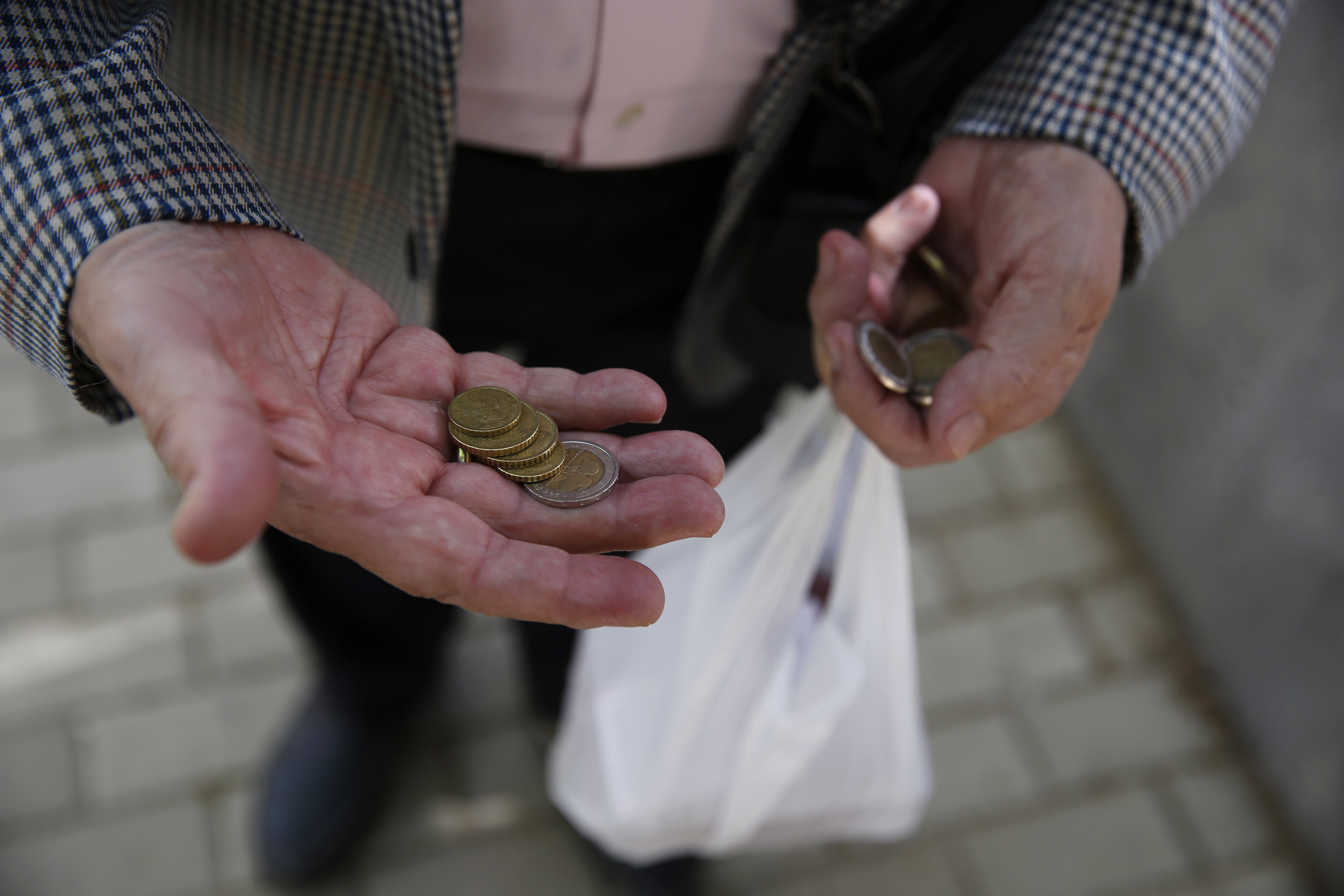Belarus ripe for pension reform - experts

The government will have to figure out both how to change the system and not hurt the retirees / Euroradio
Belarus needs around $500 million a year to avoid a pension reform and wronging those who have already paid money to the Social Security Fund, argue Kateryna Bornukova, BEROС's academic director, and Lev Lvovsky, BEROC's senior researcher.
Belarus can afford it. Besides, there is no other choice. Population aging and active migration are reducing the labor force numbers, and the shortage is only growing.
During Ideas Marathon, a series of public discussions and interviews with experts from various fields broadcast on Euroradio, the pundits shared views on how to make young Belarusians trust the government and save up for their retirement while not leaving the older generation without support.
Belarusians do not think about pension benefits
The Social Security Fund constantly requires subsidies from the state budget, with insufficient resources for pension payments. In this situation, it is not a choice between introducing reforms or not. Reforms are a must.
Belarusians themselves, though, mainly do not reflect on their retirement benefits. A 2019 BEROC/ IPM Business School poll found that more than 70% of the respondents planned to survive on a state pension. Even though sometimes in Belarus, it's not even worth 40% of a median salary.
"People only reflect on things they can influence. If no one is asking you about the pension, why think about it? You can save up yourself, but not everyone can do that," says Lev Lvovsky.
It's not always about low income, though. Belarusians do not believe in long-term savings.
"We no longer save long-term. For the last 100 years or so, anything we managed to scratch up went up in flames several times," notes Kateryna Bornukova.
A guide to not starving to death: state or funded pension?
There are several types of pension systems.
"It could be a social security pension, the so-called pay-as-you-go pension, the type we now have in Belarus. Or, it could be a funded pension. There are many options. Like, we could make it partly social security and partly funded. So that you wouldn't starve to death even if you didn't save up anything," says Lev Lvovsky.

Belarus needs something that's a mix between funded and pay-as-you-go pension systems. After all, if we switch entirely to the funded one, everyone is only saving up their retirement payments. And the people who were contributing to the Social Security Fund for years would end up at a disadvantage.
Kateryna Bornukova judges that it is possible to create a funded element to the pension system despite the population's lack of trust.

As of now, pension in Belarus is made to look like a gift from the state, affecting the motivation for saving up. People don't feel like it's their own hard-earned money – yet another issue that needs to be addressed.
"In the US, it is possible to withdraw at least a part of the pension savings for a serious cause. Like, if you need expensive medical surgery. If people are allowed to spend some of the money when something important comes up, they will be more willing to believe it's their money," Lev Lvovsky explains.
Demographic goals failed
Seeing as the problem with the current pension system is tightly linked to the population aging, the government tried to solve it by urging the families to have more children. But the introduced housing development subsidies and childcare benefits proved not to be enough.

"Benefits have a significant impact on the poor, especially the rural people. We received a positive response from them to that kind of policy.
Modern urban citizens, though, need a completely different set of birth rate support measures. A modern woman does not need 300 rubles for diapers. She needs an opportunity to balance her career and parenting. That's why we need more flexible working schedules, as well as more flexible contracts. We need infrastructure, like nurseries for the children aged below three," says Lev Lvovsky.
Kateryna Bornukova adds that men's shorter lifespan is also a part of the demographic crisis. As a result, we'll have to raise the retirement age for women. In 2022, it will be by six months longer: 63 years for men and 58 for women.
"Our government's argument about women being more involved in domestic life and childcare is slowly but surely becoming irrelevant. It's not clear why women should retire earlier. It would be natural to allow most of them to work longer," Kateryna Bornukova points out.
Experts also call attention to the successful immigration programs of other countries, like Canada or Poland. As of now, people only want to get out of Belarus, not get in. Finally, the main reason for migration may soon change from political to economic because of the decreasing quality of life.



















